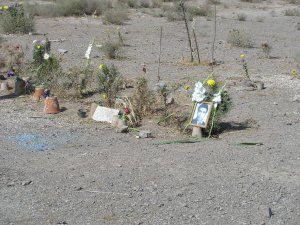A quarter of a century ago, in the summer of 1988, thousands of Iranian political prisoners who had already been tried and were serving prison sentences, stood show summary re-trials and were executed. As of today, the Iranian authorities, some of whom were also in power at the time, have not acknowledged these crimes. In a report published today, “25 years on, and still no justice: 1988 prison executions remain unpunished”, FIDH and LDDHI qualify them as extrajudicial and arbitrary executions and crimes against humanity. While their extent remains unknown, it is certain that in the span of a few months, several thousand prisoners were executed. Iranian sources have managed to document the names and particulars of at least 4,672 victims so far.
“The massive extrajudicial killings of political prisoners in various Iranian prisons during the summer of 1988 constitute, without any doubt, a crime against humanity. The scale of executions, the common pattern and proceedings and the convergence of testimonies substantiate that those killings were widespread and systematic. In addition, there is no doubt that victims were persecuted for their political and religious or non-religious beliefs”, said Karim Lahidji, FIDH President.
Iranian authorities have so far consistently declined to open any investigations into the crimes, and bring to justice the perpetrators. In addition, they have consistently denied the families’ right to know where their beloved ones have been buried. Worst still, families trying to visit, in late August/early September each year, the sites where executed prisoners are presumably buried, are regularly harassed and threatened by security and intelligence agencies.
The 25th anniversary of the massacre has been no exception: on 1 September, security forces prevented the families and relatives of the executed from entering the Kharavan cemetery, in south-east of Tehran. Ms Mansoureh Behkish, who lost 6 of her relatives had been planning with her 90-year-old mother to visit Kharavan cemetery on 5 September 2013. Ministry of Intelligence officials summoned and threatened her on 28 August. In January 2009, bulldozers destroyed some of the grave markings made in Khavaran cemetery by the families of the executed.
“Iranian authorities should immediately locate, identify and return the bodies of the victims to their families”, added Mr Lahidji. “They should stop persecuting and prosecuting the Kharavan Mothers and Mothers of Park Laleh and their supporters, as well as other relatives of the victims. We call for the immediate release of such supporters as Ms Hakimeh Shokri, Mr Mohammad Ebrahimi and any family members of the victims remaining arbitrarily detained. The authorities should also stop harassing other supporters and relatives of victims”.
In a joint letter, FIDH and LDDHI requested the UN Special Rapporteur on the human rights situation in Iran, as well as other relevant UN mechanisms, [1] to include in their next reports specific observations and recommendations regarding the 1988 mass executions and the on-going persecution of the victims’ families.
Iranian authorities should extend an invitation to all relevant UN mechanisms to visit Iran and give them free access to the victims’ families and to former political prisoners as well as to the Kharavan cemetery and other sites where executed prisoners were buried.
READ THE ATTACHED FULL REPORT


